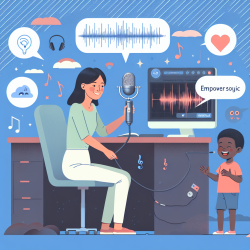In the realm of speech-language pathology, the integration of data-driven decisions and evidence-based practices is paramount. One recent study, titled "Shared and Drug-Specific Effects of Atomoxetine and Methylphenidate on Inhibitory Brain Dysfunction in Medication-Naive ADHD Boys," provides crucial insights into how different medications impact brain function in children with ADHD. As practitioners dedicated to fostering positive outcomes for children, understanding and applying these findings can significantly enhance our therapeutic approaches.
ADHD, a neurodevelopmental disorder characterized by inattention, hyperactivity, and impulsivity, often involves deficits in motor response inhibition. The study by Cubillo et al. (2012) used functional magnetic resonance imaging (fMRI) to compare the effects of two common ADHD medications—Methylphenidate (MPX) and Atomoxetine (ATX)—on brain activation during inhibitory control tasks in medication-naive boys with ADHD.
Key Findings
- Both MPX and ATX normalized underactivation in the left ventrolateral prefrontal cortex (VLPFC), an area associated with performance monitoring.
- MPX had a drug-specific effect of normalizing right VLPFC and cerebellar underactivations, which were linked to improved inhibitory performance.
- MPX showed superior upregulation effects in key inhibitory control regions, leading to enhanced brain activation and performance.
Implications for Practice
These findings suggest that MPX may offer superior benefits in normalizing brain function related to inhibitory control in children with ADHD. As practitioners, we can consider these insights when collaborating with medical professionals to develop comprehensive treatment plans. Here are some practical steps to integrate these findings:
- Collaboration with Medical Professionals: Engage in interdisciplinary discussions to consider the potential benefits of MPX for children with significant inhibitory control deficits.
- Monitoring and Assessment: Implement regular assessments to monitor changes in inhibitory control and adjust therapeutic approaches accordingly.
- Parental Education: Educate parents about the potential differential effects of ADHD medications on brain function and behavior, empowering them to make informed decisions.
Encouraging Further Research
While this study provides valuable insights, it also highlights the need for further research, particularly regarding the long-term effects of these medications. Practitioners can contribute to this body of knowledge by documenting and sharing clinical observations and outcomes.
To read the original research paper, please follow this link: Shared and Drug-Specific Effects of Atomoxetine and Methylphenidate on Inhibitory Brain Dysfunction in Medication-Naive ADHD Boys.










